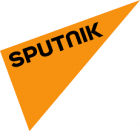
Media about us
-
Allergan to buy Tobira in push for NASH treatments
Natalie Grover / Reuters
Allergan Plc (AGN.N) said it would buy Tobira Therapeutics Inc (TBRA.O) in a deal worth up to $1.7 billion, about 19 times the company's current value, to get a leg up in the race to develop therapies for NASH, an incurable fatty liver disease.
-
Acquisitive Allergan buys micro-cap NASH biotech Tobira months
Ben Adams / Fierce Biotech
On the back of a number of deals in recent months, mainly in dermatology and after dodging its own $100 billion-plus consumption by Pfizer ($PFE) this year, Allergan ($AGN) has snapped up tiny Tobira ($TBRA) and its struggling fatty liver disease candidate, along with the rest of its pipeline, for potentially $1.7 billion.
-
No More Reading Glasses? New Implant May Help With Aging Eyes
NBC NEWS
The Raindrop implant reshapes the cornea to correct nearsightedness. Cheri Eckstadt, of Minnesota, is about to become the first person in the nation to get the newly-approved FDA device.
-
So long, reading glasses? New Raindrop eye implant could make them obsolete
Today
Thanks to a new eye implant called the Raindrop, a five-minute procedure could make reading glasses a thing of the past. NBC News medical contributor Dr. John Torres reports on the first patient to undergo the procedure since it received FDA approval.
-
Pfizer goes local with Russian joint venture - Doing Business With Russia
Kira Egorova / Doing Business With Russia
The American pharmaceutical corporation is building a new facility south of Moscow to capitalize on support from government initiatives, which is also indicative of its commitment to the local market.
-
Pfizer goes local with Russian joint venture
Kira Egorova / Russia Beyond the Headlines
In July 2016, the U.S. pharmaceutical giant Pfizer became the first foreign company in its sector to localize its business in Russia with a Russian partner. Pfizer and the Russian-American company NovaMedica, whose shareholders include the Russian state-owned company Rusnano, decided to jointly invest in the construction of a plant in the Kaluga Region, 125 miles southwest of Moscow.
-
Yahoo Finance
Most people begin to notice a decline in their near vision in their early 40s and 50s, which typically occurs as a result of a frustrating but inevitable age-related change in vision called presbyopia. Fortunately, recent advancements in technology provide surgical options to improve near vision and offer patients restored visual independence. On June 29, 2016, The U.S. Food and Drug Administration (FDA) approved the Raindrop® Near Vision Inlay -- a surgical implant produced by ReVision Optics, Inc. -- used to help improve near vision in patients between the ages of 45-65 years old who suffer from presbyopia.
-
PRWEB
Following extensive clinical trials, the Food and Drug Administration (FDA) approved the Raindrop Near Vision Inlay, a tiny, clear, implantable medical device, to improve near vision in some patients with presbyopia. FDA approval was granted June 29, 2016.
-
Follow the Money: US Companies Shrug Off Politics and Invest in Russia
Sputnik
In spite of the US government's best efforts to sanction the Russian economy, many US companies are continuing or even increasing their investment in Russia, wrote Forbes columnist Kenneth Rapoza.
-
American Companies Thriving In Russia: Is There Something To Be Ashamed About?
Kenneth Rapoza / Forbes
Ever since the Democratic National Committee decided to turn their disdain for Bernie Sanders into disdain for Russians and Donald Trump, the New York billionaire has been seen as being in bed with Russian oligarchs and longing to cut deals in Moscow. Since when was it so bad to want to do business with the Russians?
All Portfolio
MEDIA CENTER
-
The RMI group has completed sertain projects
The RMI Group has exited from the capital of portfolio companies:
Marinus Pharmaceuticals, Inc.,
Syndax Pharmaceuticals, Inc.,
Atea Pharmaceuticals, Inc.











